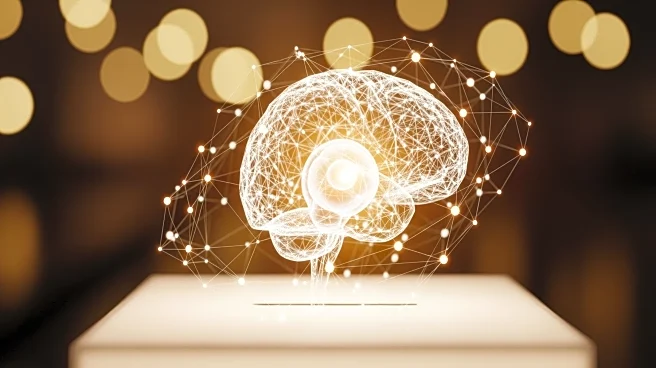What's Happening?
As GivingTuesday approaches, fundraisers are encouraged to leverage neuroscience and psychology to enhance donor engagement. Experts suggest that appealing to donors' values and identity can activate brain
areas associated with generosity. Cherian Koshy, a fundraiser and author, emphasizes the importance of clear messaging that resonates with donors' personal values. Specific campaigns, like those run by the Presbyterian Historical Society, have successfully focused donor energy on targeted projects, resulting in increased donations. Additionally, fostering a sense of community and joy can counteract the stress donors may feel during uncertain economic times. Jen Shang, director of the Institute for Sustainable Philanthropy, highlights the role of gratitude in building long-term donor relationships, suggesting that thank-you messages can alleviate stress and encourage continued support.
Why It's Important?
Understanding the psychological and neurological factors that influence donor behavior can significantly enhance fundraising efforts. By tailoring messages to align with donors' values, nonprofits can increase engagement and donations. This approach is particularly relevant during GivingTuesday, a key fundraising event for many organizations. The insights provided by experts can help nonprofits navigate economic uncertainties and maintain donor relationships, crucial for sustaining philanthropic efforts. Emphasizing community and joy can also mitigate the negative impact of stress on generosity, fostering a more supportive environment for giving. These strategies can lead to more effective fundraising campaigns, benefiting both nonprofits and the communities they serve.
What's Next?
Nonprofits may begin to incorporate these neuroscience-based strategies into their fundraising campaigns, particularly for GivingTuesday and year-end drives. This could involve more personalized messaging and targeted projects that resonate with donors' values. Organizations might also focus on building community engagement and fostering joy to enhance donor experiences. As these practices become more widespread, they could lead to increased donations and stronger donor relationships. Additionally, fundraisers may seek further insights from neuroscience and psychology to refine their approaches, potentially leading to innovative strategies that enhance philanthropic efforts.









